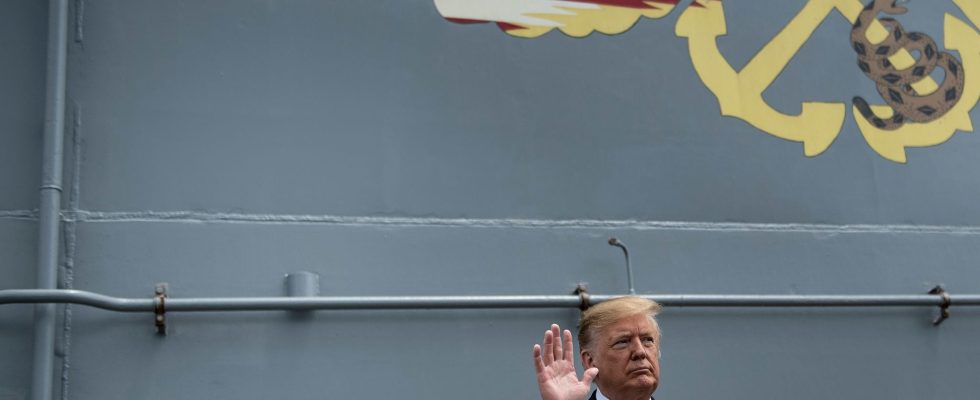Scalded by Donald Trump’s first term, the Japanese fear the worst if the champion of“America First” wins a second one next November. Tokyo said it was “following the American presidential election with great attention”. A mild euphemism for a country whose second trading partner is the United States, which is home to 50,000 GIs and cannot do without Washington for its defense, in the face of intensifying Chinese, North Korean and Russian threats.
Tokyo fears in particular to see Trump once again bargaining for its military support, by demanding that Japan participate more financially in the presence of the American military on its soil. And treat the burning issue of Taiwan as a bargaining chip with Beijing.
Even if he has not expressed himself clearly on his projects, the past outbursts of the Republican candidate and his propensity to want to conclude “deals” with authoritarian leaders worry the archipelago on a number of sensitive subjects. In business circles, 54% of companies, according to a recent Reuters poll, fear a strengthening of American protectionism – which could result in new customs duties on Japanese products. Trump also promised to block the proposed takeover of the flagship United States Steel by the Japanese Nippon Steel – a project worth 14.9 billion dollars.
Fear of an invasion of Taiwan
Another fear is that Trump will conclude a trade or security agreement with Beijing, contrary to the current efforts of the G7 and the Biden administration to protect themselves against trade practices deemed unfair and Chinese expansionist aims in the region. In Tokyo’s eyes, such an agreement could embolden the communist regime, which is just waiting for a good opportunity to seize Taiwan. “If it became clear that the United States has no intention of defending Taiwan, the temptation to intervene would be too great for China. It would not resist it,” observes Masafumi Ishii, former Japanese ambassador in Indonesia, whose country would be weakened.
Asked by Fox News in July 2023 about his reaction, as head of the United States, if Taiwan were attacked by China, Trump left doubt about a possible intervention: “If I respond, I find myself in a very bad situation. negotiating posture. That said, Taiwan has taken all of our semiconductor business from us…”
Concerned, the Japanese executive is doing everything to contact Trump and renew the relations established during the Republican’s first term. In 2016, Tokyo did not believe in its victory and had not prepared for it. The then Prime Minister, Shinzo Abe (2012-2020), however managed to be the first foreign leader to meet him after his election. Received in the tycoon’s apartment in the Trump Tower in New York, he gave him an expensive golf club. Subsequently, Abe enjoyed privileged access to the leader. He even supported Trump’s candidacy for a Nobel Peace Prize in 2019, supposed to honor him for his rapprochement with North Korea.
That time is long gone and making contact is complicated today, because Trump’s former close associates interested in the archipelago – former Vice President Mike Pence and former Ministers of Defense James Mattis and Minister of Business foreigners Mike Pompeo – have distanced themselves.
In this context, Tokyo appointed a new ambassador to the United States at the end of 2023, Shigeo Yamada, responsible for establishing a link with the Trump campaign team. To support it, the embassy called on three consulting firms, starting with Ballard Partners, whose director, Brian Ballard, has known Trump for thirty years and is one of the main fundraisers for Republicans in Florida. At the same time, Taro Aso, Japanese deputy prime minister during Trump’s mandate, went to the United States in January to try to meet him, in vain.
For now, hope lies with Senator Bill Hagerty, ambassador to Japan from 2017 to 2019 and considered a serious candidate to join a second Trump administration. He agreed to meet Aso and Yamada. He reportedly reminded them that Trump “is someone who wants to do business” in East Asia. Given the unpredictability of the former president, this was probably not enough to reassure them.
.
